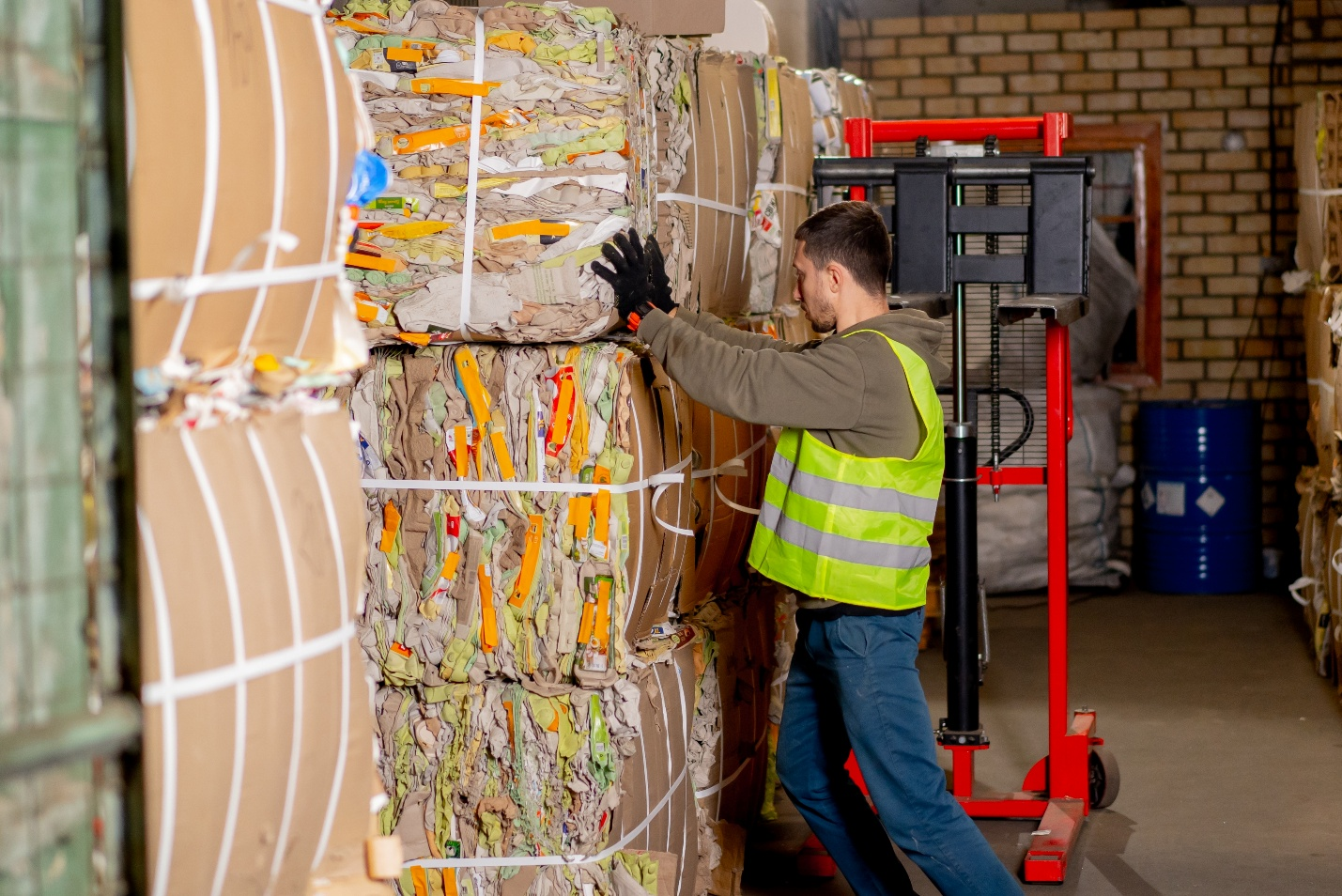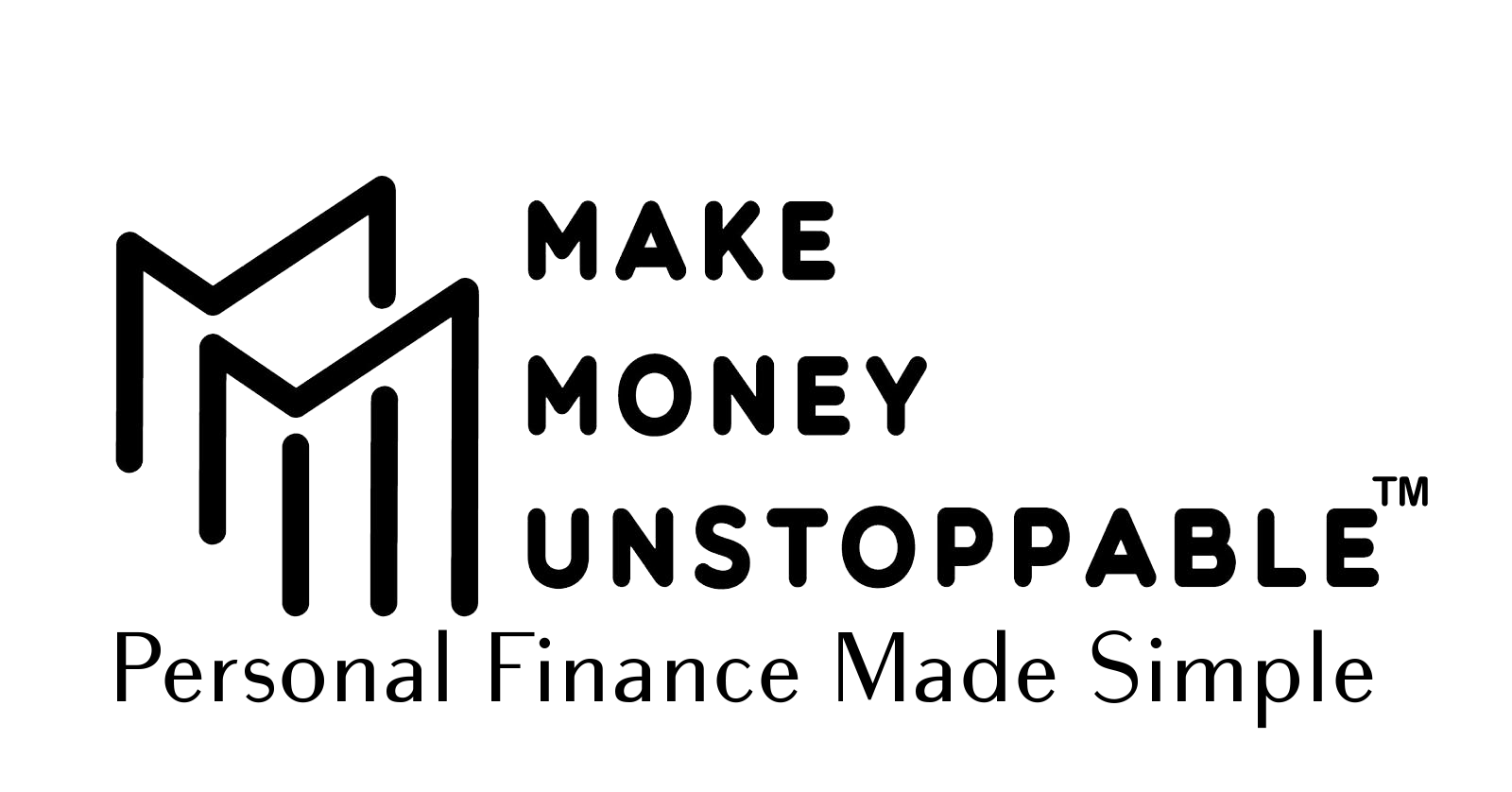
Buying Retail vs. Buying Wholesale: Smart Shopping Strategies for Everyday Consumers
In today’s economy, every dollar matters. Whether you’re shopping for household essentials, clothing, or everyday goods, understanding the difference between buying retail and buying wholesale can help you make smarter financial decisions. For the average consumer, knowing when to choose retail and when to opt for wholesale can lead to better budgeting, reduced waste, and more control over spending your hard-earned dollars.
Last Updated: September 11, 2025

Disclaimer: I am not a licensed financial advisor, financial planner, tax professional, or attorney. The information provided in this blog is for general informational and educational purposes only and should not be construed as professional advice. Always consult with a qualified expert before making financial, legal, or tax-related decisions.
This blog helps break down the key differences between retail and wholesale buying, highlighting the pros and cons of each, and offers practical insights to help everyday shoppers navigate both options with confidence.
What Is Retail Buying?
Retail buying involves purchasing goods in limited quantities from physical stores, online platforms, or marketplaces for personal use. These items are typically sold at full market price, with additional costs built into the final tag that may cover branding, advertising, packaging, security, staffing, and other operational expenses. In essence, you’re not just paying for the product itself, but also for the convenience and experience of buying it through a retail channel.
Key Features of Retail Buying may include:
- Smaller quantities suited for individual or household use
- Higher prices per item due to retail markup
- Wide variety of brands, styles, and packaging
- Immediate availability with no minimum purchase required
- Convenient locations, including local stores and online platforms

What Is Wholesale Buying?
Wholesale buying involves purchasing goods in bulk directly from suppliers or distributors at a reduced price per unit. While traditionally used by businesses, wholesale buying is increasingly accessible to everyday consumers through warehouse clubs, online platforms, and cooperative buying groups.
Key Features of Wholesale Buying may include:
- Bulk quantities purchased at once
- Lower prices per item due to volume discounts
- Limited variety or packaging options
- May require planning for storage and long-term use
- May include minimum purchase requirements
Unlock your financial freedom.
Download this FREE eBook!.
How to make $100,000/month? Stop being average and think big.
Yes, this eBook is Free. Just drop your email to get instant access. It will be sent to your email.
How To Make $100 A Day – 23 Real Ways To Make Extra Money
16 Best Ways To Get Paid To Read Books in 2025
How To Become Rich – Strategies To Become Wealthy
18 Passive Income Ideas To Earn $1,000+ Each Month
Best Rewards Credit Cards For 2025 | What You Need To Know
Subscribe for exclusive insights
PLUS: Get Access to exclusive financial tips, learn everything about money and get early blog updates – delivered directly to your inbox .
Retail vs. Wholesale: Pricing and Value
One of the most significant differences between retail and wholesale buying is the price per unit.

Retail prices usually include markups for convenience, branding, and overhead costs, whereas wholesale prices may reflect the base cost of the product. For consumers, this can mean that wholesale buying may offer substantial savings over time, depending on the product.
However, wholesale buying requires a larger upfront investment and may not be practical for every household. Retail buying, while more expensive per item, may offer the flexibility and convenience that suits many lifestyles.
Pros and Cons of Retail Buying
Advantages:
- Convenience: Easy access to products without bulk commitment
- Flexibility: Buying only what you need, when you need it
- Variety: Choosing from multiple brands and styles
- Minimal storage needs: No need for extra space
Disadvantages:
- Higher costs: Paying more per item over time
- Frequent shopping trips: More time spent buying essentials
- Impulse spending: Greater risk of buying unnecessary items

Pros and Cons of Wholesale Buying
Advantages:
- Potential lower prices: Saving money on bulk purchases
- Fewer shopping trips: Stocking up and reducing frequent visits to the store
- Ideal for families: May be great for households with high consumption
- Group buying potential: Sharing costs with friends or neighbors may work
- Storability: Non-perishables may be stored if you have storage
Disadvantages:
- Increased spending: You may tend to spend more
- Storage needs: Bulk items may need more storage space at home
- Limited flexibility: May not suit small households or when purchasing for occasional use
- Loss and damage: Perishables may spoil quickly and will need to be thrown out

When Wholesale Buying May Make Sense
Wholesale buying can be a practical and cost-effective option for everyday consumers, especially when certain conditions align with their budget and needs.
It’s particularly advantageous for households that may consistently use specific products, have adequate space to store bulk quantities, and are looking to lower their monthly expenses. But this will require careful buying habits and not buying everything you see on impulse.
This approach may also appeal to those who prefer to plan ahead to reduce the frequency of shopping trips and maximize long-term value.
When Retail Buying May Be the Better Option
Retail buying continues to be the most practical option for a wide range of consumers. It’s especially suitable for individuals, small households, those with limited budgets, and those with limited storage capacity.
This approach may appeal to shoppers who may value variety, branded packaging, and the flexibility to purchase items as needed without the commitment or upfront cost and membership fees that may be associated with bulk buying.
Budgeting Considerations for Everyday Shoppers
Retail vs. Wholesale Buying: A Budgeting Perspective
Choosing between retail and wholesale purchasing often hinges on your financial strategy and consumption habits. Wholesale buying can lead to significant long-term savings, especially for frequently used items, but it typically demands a larger upfront investment. It may also encourage bulk purchases of items you don’t immediately need, increasing the risk of waste or leading to impulse spending.

Retail buying, on the other hand, allows for more flexibility by spreading costs over time. While this can ease short-term financial pressure, it often results in higher cumulative spending due to smaller quantities and less favorable pricing.
Ultimately, the smarter choice depends on your budget, storage capacity, and your discipline as a shopper.
Consumers may want to consider:
- Monthly usage patterns
- Available storage space
- Cash flow and budget flexibility
- Product shelf life and expiration dates
- Buying perishables vs non-perishables
- Your needs vs your wants
Making Informed Choices Based on Your Needs:
Take time to evaluate both retail and wholesale options in light of your personal needs, habits, and budget. Once you’ve analyzed what works best for your situation, you can make purchasing decisions that align with your goals, whether that means saving money, minimizing waste, or maximizing convenience.

Psychological Factors Behind Retail vs. Wholesale Buying
Consumer behavior is shaped by more than just price tags. Psychological triggers may play a major role in how people shop when choosing between retail and wholesale.
Instant Gratification vs. Strategic Planning: Retail buying often satisfies immediate needs and emotional impulses, offering quick access to products. Wholesale buying, by contrast, encourages forward-thinking and may require planning and patience in exchange for potential long-term savings.
Flexibility vs. Efficiency: Retail may offer greater flexibility, with access to a wide range of brands, styles, and quantities tailored to individual preferences. Wholesale buying may seem less customizable, but it can be more efficient for those with consistent needs and may apply to larger households.
Impulse vs. Intentionality: Retail environments may be designed to stimulate frequent purchases, which can lead to decision fatigue and unplanned spending. Wholesale buying typically involves fewer, larger decisions, often driven by logic and budgeting rather than impulse buying.
Lifestyle Expression vs. Practical Value: Retail purchases can reflect personal identity, brand loyalty, and lifestyle choices. Wholesale buying may tend to prioritize practicality and value, and may shift the focus toward utility and cost-effectiveness.

Environmental Impact: Bulk vs. Frequent Purchases
Your buying habits may influence more than just your budget. They also have the potential to shape your environmental footprint. When done thoughtfully, wholesale buying can be more sustainable, but both approaches may have trade-offs worth considering.
- Packaging Waste:Retail products often come with individual, branded packaging that may contribute to excess waste. Wholesale items may typically use bulk packaging, which can significantly reduce the amount of material discarded.
- Transportation & Emissions: Frequent retail shopping trips, especially by car and driving long distances to shop, can increase fuel consumption and greenhouse gas emissions. Bulk buying may reduce the number of trips and may help to lower your overall carbon footprint.
- Product Waste:Retail buying may encourage overconsumption due to convenience and marketing, while wholesale buying runs the risk of spoilage or waste if items aren’t used before expiration. Responsible planning is key to minimizing waste in both cases.

Sustainable Shopping Tips:
- Choosing recyclable or compostable packaging: You mayopt for products with minimal, recyclable, or biodegradable packaging to reduce landfill waste.
- Planning purchases to avoid waste: Make a shopping list and stick to it. Avoid buying perishables in bulk unless you can use or store them properly.
- Consolidate shopping trips: Reduce fuel use and emissions by combining errands or shopping online with grouped deliveries.
- Supporting eco-conscious suppliers:Buying from brands that prioritize sustainability, ethical labor practices, and transparent sourcing.
- Buying local and seasonal: Supporting nearby producers and reducing the carbon footprint associated with long-distance transportation. Buying from farmers close to home may help get you fresh produce, too.
- Choosing durability over disposability: Investing in long-lasting items rather than single-use products.
- Bringing reusable bags, containers, and bottles:Cut down on plastic waste by using your own shopping bags, produce bags, and refillable containers.
- Avoiding fast fashion and trend-driven purchases.Choosing timeless, evergreen, high-quality clothing and accessories that last longer and reduce textile waste.
- Looking for certifications: Certain industry-specific labels and certifications may help identify responsible products.
- Repair, reuse, and repurpose:Before replacing items, consider fixing or repurposing them to extend their life cycle.

Smart Tips for Organizing and Storing Bulk Items at Home
Buying in bulk can be a great way to save money and reduce waste—but only if you are planning to store items properly and keep track of what you have.
Here’s how you may keep your space organized, efficient, and clutter-free:
- Using Clear, Labeled Containers Opt for transparent bins or jars that can enable you to easily see the inner contents at a glance. You may also label each container clearly with the item name and expiration date to avoid confusion and overbuying.
- Creating a Dedicated Storage Zone Designate a specific area for bulk items, such as in pantry shelves, a closet, or a garage corner. Group items by category to streamline access and restocking.
- Tracking Inventory and Usage Maintaining a simple inventory list either on paper or digitally to help monitor stock levels and avoid duplicate purchases. Practice “first in, first out” by rotating older items to the front to ensure they’re used before newer ones.

- Prioritizing Hygiene and Safety Storing bulk goods in clean, dry, and pest-free areas. Use airtight containers to preserve freshness and prevent contamination. Keep items off the floor to protect them from moisture and pests.
- Maximizing Vertical Space Installing shelves, stackable bins, or hanging organizers to make the most of vertical storage areas can help increase and maximize your available storage space. This can also help keep items accessible without cluttering your floor space.
- Storing Hazardous Items Separately Keeping bulk cleaning products, chemicals, or flammable items in a secure, well-ventilated area away from food and children can help minimize accidents, spills, and exposure.
- Schedule Regular Check-ins Set a monthly reminder to review your inventory, clean storage areas, and discard expired or damaged items. Staying proactive may help prevent waste and keep your system running smoothly.
Making the Right Choice for Your Lifestyle
There’s no universal answer when it comes to choosing between retail and wholesale buying—it’s a decision shaped by your unique lifestyle, budget, household size, and shopping habits. Retail buying offers the convenience of smaller, more frequent purchases, ideal for those who value flexibility, variety, and immediate access. Wholesale buying, on the other hand, may reward strategic planning with long-term savings, reduced packaging waste, and fewer shopping trips. This may be beneficial for larger households or those with consistent consumption patterns.
By understanding the strengths and trade-offs of each approach, consumers can make intentional choices that align with their financial goals, storage capacity, and values.
Whether you’re stocking up for a bustling family, managing a minimalist lifestyle, or simply trying to stretch your budget, smart shopping begins with clarity. Knowing your needs, evaluating your options, and choosing the path that supports both your wallet and your well-being.
Join the conversation! Drop your thoughts in the comments below, and let’s keep the discussion going.
From Experience to insight : Transformational reads for the Strategic mind
Foundational readings for big shifts:
- How to Track Spending without Getting Overwhelmed
- The 7-Day Money Reset Plan: Take Back Control In Just One Week
- Are You Throwing Away $5,000 a Year on Food Waste Without Realizing It?
- Proven Ways to Stop Impulse Buying: The Psychology of Spending
- Advantages of Using Cash in a Cashless Era
- 20 Budget-Savvy Tips for Saving Money
Author: Vaidya Selvan
Welcome to Make Money Unstoppable Personal Finance Made Simple, a blog born out of necessity, a space created from real-life experiences, hard-earned lessons, and a deep-seated desire to share what I wish someone had taught me or had known sooner.
Newsletter Invite
Want more real-world information on Money? Join my newsletter for practical tips, updates on my books, and strategies to help you build financial freedom on your terms.
#FinancialFreedom #Newsletter #MoneyTips




One reply on “Buying Retail vs. Buying Wholesale”
[…] Buying Retail vs. Buying Wholesale […]